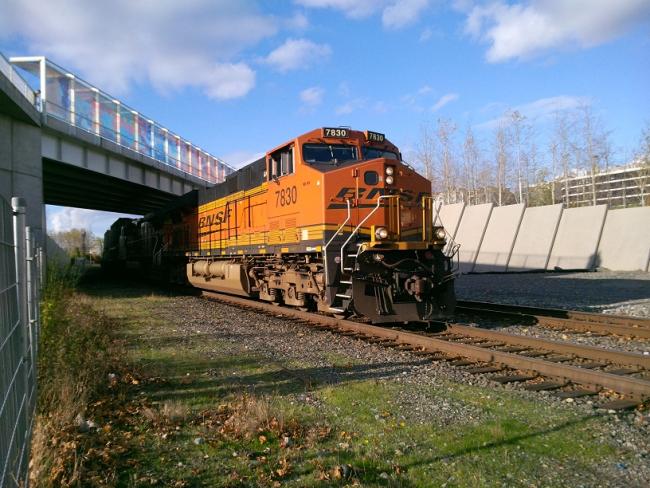21st Century Viking: What Is the Coal Train Controversy Really About?
Thu, 12/13/2012
By Brian LeBlanc
Over the past few months, one of the biggest topics of conversation around Ballard has been the issue of coal trains. In an effort to learn more about the issue, I recently attended the Washington State Rail Plan Public Workshop at City Hall, which was hosted by WSDOT. I had a chance to hear different perspectives on the coal train issue and saw that Ballard’s big concern is just one small piece of a complex puzzle.
WSDOT is currently in the process of developing the Washington State Rail Plan, which “will serve as a strategic blueprint for future public investment in the state’s rail transportation system” and “provide an integrated plan for freight and passenger rail” over the next 20 years. (For more information on the State Rail Plan, visit: http://www.wsdot.wa.gov/Rail/staterailplan.htm)
The presentations on the current state of passenger and freight rail service were fascinating. The figures that made the biggest impression on me, however, were WSDOT’s assessments that “freight rail also supports goods movement industries that comprise 41 percent of Gross State Product and 40 percent of total state employment.”
The presentations were interspersed with opportunities for participants at each table to talk about what issues they thought were important and should be addressed in the plan. I sat next to Herb Krohn, the President and State Legislative Director of United Transportation Union Local 1348, which represents railroad workers. When I asked him about the coal trains, Krohn said that the environmentalists are attacking rail as a way to get at coal. He believes the real issue with the coal trains is that "(environmentalists) don’t like coal the commodity and they want to stop use of it."
One of the notable objections of the anti-coal train coalition is the negative health effects of coal dust. When I asked him about their claims, Krohn said coal is not a hazardous material but rather a mineral, the dust is not hazardous except in confined spaces, and is not a pollutant except when it is burned. He also mentioned that much more hazardous materials are being currently transported through Ballard. If there were a train derailment involving such hazardous materials, it would be a huge environmental disaster and Krohn wondered why people weren’t getting upset about that instead.
Getting the big picture from the WSDOT presentations and talking to people like Mr. Krohn gave me different perspectives on the coal train issue. The anti-coal people have brought up some important points, such as the length of the coal trains and the effect that would have on the region’s auto traffic. But I don’t know if they have really thought through what they are asking for.
When they say that they do not want coal trains coming through Ballard, are they really trying to say they don’t want trains coming through here at all? Or is it, as Krohn suggested, about stopping coal use altogether? If you don’t want to see a particular commodity being transported, it doesn’t seem like that far down the slippery slope to not wanting railroads to ship anything controversial or hazardous through Ballard. What would happen then?
The railroads would certainly be transporting a lot less through Washington. The lives of the 40 percent of people who work in Washington’s freight transportation-dependent industries that make up 41 percent of state GDP would be affected. The railroads aren’t going to stop transporting these materials; they will just find different routes to different coal terminals in different states.
Environmentalists often talk about how everything is interconnected. In this instance, they are more right than they know. Freight transportation is a large part of our state’s economy, and the proposed building of these coal terminals will have a large effect on many people’s lives for many different reasons.
On the surface it seems like it’s just about coal trains going through Ballard. But it is a much more complex issue than I thought. Instead of jumping to conclusions about this emotionally charged issue, it is important to listen to all sides and come to a better understanding of the issues involved.
Follow Ballard News-Tribune on Facebook at http://www.facebook.com/ballardnewstrib
And Twitter at http://twitter.com/ballardnewstrib


